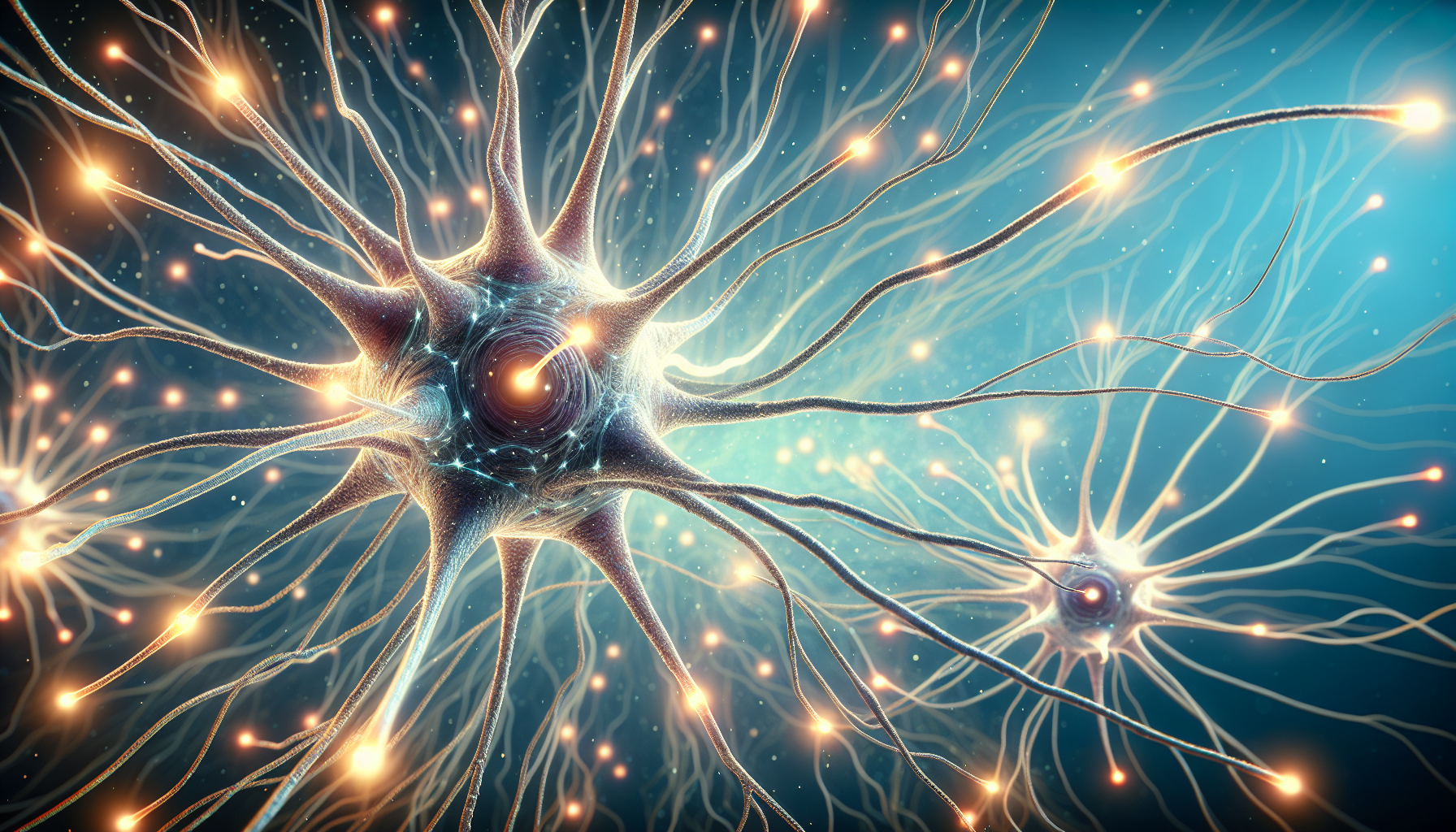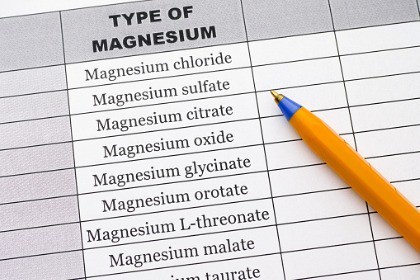Are you constantly tired, experiencing muscle cramps, or mood swings? You might be asking yourself, “Should I be taking magnesium?” This essential mineral plays a key role in hundreds of bodily functions, yet many people are unknowingly deficient.
From promoting better sleep to supporting heart health and even potentially warding off migraines, magnesium’s benefits are both diverse and impressive. But before you start supplementing, it’s crucial to understand the pros and cons.
This guide will explore the benefits of magnesium, potential risks, and help you decide if supplementation is right for you.
Read on to discover if this mineral could be the missing piece in your health puzzle.
Key Takeaways
- Magnesium is essential for various bodily functions, including enzyme activity, DNA synthesis, and blood pressure regulation.
- Magnesium deficiency is more common in individuals with specific health conditions like diabetes and alcohol use disorder, though it is generally rare in the overall population.
- Full-spectrum magnesium supplements combining multiple forms of the mineral may offer comprehensive benefits for various bodily functions.
- Magnesium supplements can be beneficial for lowering blood pressure, easing constipation, preventing migraines, and supporting a healthy pregnancy, but they should be taken cautiously to avoid potential side effects or interactions with medications.
Importance of Magnesium in the Body

Every cell within the human body contains magnesium, an essential ion that plays a crucial role in numerous cellular activities.
Magnesium is vital for maintaining stability in polyphosphate compounds, which are integral to the synthesis of DNA and RNA.
Insufficient levels of magnesium can interrupt these core processes, potentially triggering various health complications.
The mineral serves as a cofactor for more than 300 enzymes that either use or create ATP – the primary molecule used by cells for energy.
Beyond its cellular functions, magnesium is also key to managing blood sugar levels and controlling blood pressure.
This mineral assists mitochondria function effectively in producing energy while also regulating neurotransmitters related to sleep patterns thus contributing to improved quality and length of restful sleep periods.
Magnesium also works hand-in-hand with vitamin D. Their combined action significantly benefits bone strength and immune response among other physiological systems.
An adequate intake of this critical nutrient through diet or supplementation can greatly support these important aspects of good health.
Ensuring sufficient dietary magnesium intake can help prevent health conditions, such as:
- constipation,
- preeclampsia,
- migraines,
- mood disorders,
- high blood sugar,
- high blood pressure,
- insomnia,
- leg cramps,
- and dementia.
Ensuring adequate magnesium intake is crucial for maintaining overall well-being, as deficiencies can have significant health implications.
This underscores the importance of not underestimating the role of magnesium in nutrition and its impact on longevity and vitality.
Next, we will explore the prevalence of magnesium deficiencies, their implications for individual health, and strategies to address these nutrient shortages.
How Common is Magnesium Deficiency?
Dietary surveys in the United States consistently reveal that many individuals consume less magnesium than recommended.
Data analysis from the 2013-2016 National Health and Nutrition Examination Survey (NHANES) indicates that 48% of Americans across all age groups do not meet the recommended magnesium intake through their diet.
People with chronic conditions like diabetes or gastrointestinal issues that affect magnesium absorption are particularly at risk.
Chronic drinking poses another major factor contributing to a potential lack of sufficient magnesium intake.
Regular consumption of alcohol may hinder absorption and boost renal excretion of magnesium, leading gradually to diminished stores over time.
Since symptoms related to insufficient magnesium levels are often mild and go undetected until they reach acute lows, it remains a frequently overlooked condition.
For most people who consume a varied diet abundant in nutrients. Deficiencies in their level of bodily magnesium hardly ever occur.
Nevertheless, individuals grappling with poor eating habits or particular health challenges must be vigilant about their consumption levels of this vital nutrient because ensuring an adequate amount through one’s food could prevent shortages while promoting overall wellness.
We’ll proceed by examining how incorporating supplemental sources might offer various positive outcomes for health issues tied to deficits when natural dietary practices don’t suffice for proper maintenance—or restoration—of normal bodily reserves.
Health Benefits of Magnesium Supplements
Taking a magnesium supplement can have a wide array of health advantages, particularly for those with specific conditions or deficiencies.
Among its most significant benefits is the capacity to decrease high blood pressure, including diastolic blood pressure.
This reduction is crucial since elevated diastolic pressure poses a major risk factor for heart disease. Magnesium supports this by inducing vascular relaxation, which enhances circulation and lowers hypertension.
Magnesium supplements may also reduce blood pressure levels, reduce the risk of heart disease, and benefit blood sugar management.
Magnesium also proves beneficial in addressing constipation and acid reflux issues due to its:
- Laxative quality that facilitates smoother bowel movements.
- Property as an antacid that counteracts excess stomach acid, alleviating digestive unease.
It’s advantageous for migraine sufferers. Research indicates these individuals often exhibit decreased magnesium levels and supplementation may prevent or treat severe headaches.
Choosing a supplement that contains a well-absorbed form of magnesium, such as magnesium citrate, can help meet daily magnesium needs and maintain overall health.
Pregnant women can benefit significantly from taking magnesium supplements. These supplements are known to alleviate common pregnancy-related issues such as migraines, heightened anxiety, leg muscle cramps, digestive difficulties, and gestational hypertension.
Additionally, magnesium intake may reduce the likelihood of preterm labor and early childbirth, as well as lower maternal serum glucose levels, potentially decreasing the risk of developing gestational diabetes.
Magnesium supplements have been shown to effectively reduce inflammation markers such as C-reactive protein (CRP) and interleukin-6, promoting overall wellness and potentially lowering the risk of chronic diseases.
For women, in particular, magnesium can alleviate various PMS symptoms, including bloating, depressive moods, and nervous tension.
The Benefits of Full-Spectrum Magnesium Supplementation
When considering magnesium supplementation, it’s worth exploring full-spectrum options that provide multiple forms of this essential mineral.
One such product, Magnesium 7, offers a comprehensive approach by combining seven different types of elemental magnesium along with important co-factors.
Full-spectrum magnesium supplements can provide a range of benefits due to the varied absorption rates and specific functions of different magnesium forms. For example:
- Magnesium chelate may support muscle recovery.
- Magnesium glycinate could aid sleep and brain health.
- Magnesium aspartate might help with mood regulation.
- Magnesium malate is thought to benefit the nervous system.
- Magnesium orotate may support heart health and exercise performance.
- Magnesium taurate could assist with relaxation and blood pressure regulation.
- Magnesium citrate may contribute to cardiovascular and intestinal health.
Additional co-factors like Vitamin B6 and manganese can enhance the overall effectiveness of the supplement.
For instance, research suggests that combining magnesium with Vitamin B6 may improve stress reduction.
The potential benefits of a full-spectrum magnesium supplement include:
- Stress and anxiety reduction.
- Improved sleep quality.
- Support for heart and bone health.
- Enhanced nutrient absorption and energy production.
- Healthy cellular and nerve function.
- Maintenance of muscle mass and relief for sore muscles.
While individual needs vary, those looking to optimize their magnesium intake might consider exploring a full-spectrum daily magnesium supplement.
As always, it’s advisable to consult with a healthcare professional before starting any new supplement regimen to ensure it’s appropriate for your specific health needs and goals.
Should Healthy Adults Take Magnesium Supplements?
Those in good health without a confirmed magnesium deficiency may ponder whether there’s any merit to including magnesium supplements as part of their routine.
Although the daily intake of such supplements is widely considered safe for most people when adhering to appropriate dosage levels, it’s crucial to evaluate if supplementation is actually needed.
Kidneys have the capacity to flush out excess magnesium effectively, which makes an overdose unlikely among healthy individuals.
There isn’t solid proof that supports significant advantages from taking magnesium supplements for adults who don’t lack this nutrient in their bodies.
The existing research has not yet convincingly shown positive effects on fatigue and mood-related symptoms, indicating possible inefficacy in these areas.
Therefore, before beginning any kind of supplement regimen, speaking with one’s doctor is imperative.
They can assess your complete medical history along with any current medication regimens you are on, helping decide if adding a supplement would be beneficial.
When contemplating oral magnesium supplementation, recognizing what constitutes a harmless amount of consumption becomes paramount.
For the majority of grown-ups, ingesting less than 350 mg per day could normally pose no safety concerns.
Exceeding this limit could lead to adverse effects, particularly for those with kidney disease. It’s crucial to monitor intake and stay within the recommended dietary limit, which is generally around or below 400 mg daily.
Safety and Risks of Magnesium Supplementation
Utilizing magnesium supplements is widely considered harmless when taken in appropriate amounts.
For the majority of adult individuals, daily oral doses below 350 mg are deemed to be within a safe limit.
Nevertheless, as with all supplements, ingesting magnesium may lead to certain adverse reactions. Some of the common side effects associated with this supplement include:
- upset stomach,
- feelings of nausea,
- episodes of vomiting,
- and bouts of diarrhea.
These issues might manifest during your course of treatment and are usually mild and controllable. It’s critical to recognize their potential occurrence.
Consuming too much magnesium can result in severe health issues.
Although uncommon, extremely high magnesium levels can cause hypermagnesemia – an overabundance of magnesium in the bloodstream.
Symptoms of hypermagnesemia include lethargy, weakened muscles, and breathing difficulties.
In extreme cases, taking very large doses (exceeding 5,000 mg/day) of products like laxatives or antacids containing magnesium can lead to toxicity.
This may cause irregular heartbeats, lowered blood pressure, mental confusion, impaired breathing, and in the most severe instances, can be fatal.
Individuals with renal impairments are at a higher risk of accumulating toxic levels of magnesium because their compromised kidneys cannot efficiently excrete the excess.
It’s essential to be cautious when taking magnesium supplements alongside other medications that may either reduce its absorption or affect the efficacy of other drugs.
Careful label examination is crucial, as multivitamins, antacids, and laxatives often contain hidden sources of magnesium.
Consulting with knowledgeable pharmacists can provide accurate information and guidance on usage.
Additionally, while adding supplements to your diet is generally considered standard practice, it’s important to monitor recommended allowances and watch for signs of adverse reactions.
Protective measures are even more critical for those with existing health conditions or those on specific medication regimens.
After addressing these precautions, we can now explore the best food sources rich in magnesium to naturally boost your nutrient levels.
Best Dietary Sources of Magnesium
Ensuring adequate magnesium intake is best achieved through consuming it as part of the diet.
A wide range of foods, including some that are fortified, such as certain breakfast cereals, contain this essential mineral.
Rich sources include green leafy vegetables like spinach and kale. These foods are excellent for increasing one’s magnesium levels.
Seeds, nuts, and whole grains offer a bounty of magnesium-rich choices to seamlessly fit into any well-rounded eating plan.
Legumes also serve as wonderful options for obtaining more magnesium in your diet.
A single cup of cooked black beans contributes 120 mg, while half a cup of shelled edamame yields 50 mg.
Dairy products along with meats provide doses of this nutrient too just like chocolate and coffee do—offering diverse ways to accommodate distinct dietary needs or tastes—for instance snacking on almonds provides you with an impressive 76 mg per ounce whereas cashews come in slightly higher at 83 mg per ounce.
Foods such as extremely versatile tofu or creamy avocados can be considerable contributors to your daily dose.
- Consuming half a cup provides approximately 37 mg of magnesium.
- Avocados are nutritional powerhouses, making them ideal for various dishes. Whether blended into smoothies, spread on toast, added to salads and sandwiches, or enjoyed straight from the skin, they are a delicious way to boost your magnesium intake.
- Quinoa—a powerhouse grain—one prepared serving clocks around 118 mgs.
By integrating these items across meals increases the chances of meeting recommended thresholds foregoing tablets capsules altogether.
In summary, leveraging the power of plants across different food groups, notably green vegetables, a variety of seeds, and different types of nuts, can be sufficient to meet the magnesium needs of most people.
By thoughtfully planning your meals to include these magnesium-rich foods, you can maintain your overall well-being through diet alone.
Finally, we turn our lens toward interactions between type including its derivative citrate concurrently administered alongside other medicines drawing attention importance cautious approach mitigate risk experiencing adverse effects related compound interaction mechanisms.
Interactions Between Magnesium and Medications
The interaction of magnesium with different medications can influence how well these medications work.
For example, when combined with specific antibiotics, including tetracyclines and those belonging to the quinolone family, magnesium may impede their complete absorption.
It is advisable to consume magnesium supplements either at least two hours before or between four and six hours after taking such antibiotics to circumvent any potential negative interactions.
Magnesium has been found to interact with various drugs like:
- Antibiotics in the aminoglycoside category, for instance amikacin and gentamicin.
- Fluoroquinolone antibiotics like ciprofloxacin and tetracycline derivatives such as demeclocycline and minocycline.
- Hypertension medicines categorized under calcium channel blockers which encompass nifedipine along with verapamil.
Consulting healthcare professionals regarding correct dosage timing is essential in preventing drug interference.
Interactions are also seen between bisphosphonates (osteoporosis treatments) and magnesium—timing intake properly mitigates diminished drug efficacy.
Products containing magnesium could potentially interfere with cellulose sodium phosphate use or impact digoxin’s action.
Those prescribed thyroid hormones such as levothyroxine should get guidance from pharmacists on how best to schedule their intake of magnesium supplements so it doesn’t affect medication effectiveness.
While there are significant health benefits tied to using magnesium supplements—including managing blood pressure—it’s important not only to be aware but also vigilant about its possible interactions with other medicines one might be consuming.
Seeking advice from medical providers ensures safe utilization of these nutritional aids alongside prescribed treatment regimens without compromising efficiency.
Moving forward, we will address special considerations needed when certain individuals—such as pregnant women or those suffering from cardiovascular disease—decide whether they should take up supplementation that includes elements like Magnesium within their regimen.
Special Considerations for Different Groups
Diverse populations require tailored amounts of magnesium, and some are more vulnerable to potential supplementation risks.
For pregnant women, a daily dose of 350-360 milligrams is suggested to prevent complications related to pregnancy such as fetal growth restriction stemming from high blood pressure—making sufficient magnesium consumption critical for mothers-to-be.
Ensuring children receive an adequate supply of magnesium is vital for their growth and development.
While it is generally safe when taken orally in appropriate dosages, consulting with a pediatrician can help ensure that children’s dietary needs are met and that supplements are used correctly if needed.
Individuals with kidney disease must be especially cautious when using magnesium supplements, as their bodies might struggle to eliminate excess amounts, potentially leading to harmful accumulation and toxicity.
Similarly, those dealing with chronic diarrhea, celiac disease, or diabetes may experience increased magnesium loss, necessitating careful monitoring and possible supplementation.
Specific demographics including expectant mothers, growing children, and persons managing particular health issues have unique needs regarding their intake levels—and thus should seek personalized advice on incorporating supplemental sources safely into their regimen.
Summary
Magnesium is crucial for numerous bodily functions, including enzyme activity, blood sugar regulation, and blood pressure control.
While deficiency is uncommon in the general population, it can occur in those with chronic health conditions or poor diets.
Magnesium supplements may benefit these at-risk individuals by reducing blood pressure, preventing migraines, and supporting healthy pregnancies.
Healthy adults without deficiencies may not need additional supplementation. It’s essential to consult a healthcare provider before starting any supplement regimen.
While generally safe within recommended limits, excessive magnesium intake can lead to side effects or interact with certain medications.
The most effective way to ensure adequate magnesium intake is through a balanced diet rich in leafy greens, seeds, nuts, whole grains, and legumes.
However, for those considering supplementation, a full-spectrum daily magnesium supplement may offer comprehensive support for various bodily functions.
Consider exploring a full-spectrum magnesium supplement option if you and your healthcare provider determine that magnesium supplementation is right for you.
Frequently Asked Questions
What are the signs of magnesium deficiency?
Should you be suffering from fatigue, muscle cramps, nausea, or an irregular heartbeat, this might indicate that your body is low in magnesium. These symptoms typically manifest when the magnesium levels have dropped significantly.
It’s important to monitor these symptoms and think about seeking medical advice for a more comprehensive assessment.
How much magnesium should I take daily?
It’s advisable to consume approximately 350-400 mg of magnesium every day. It is crucial to seek tailored recommendations from a healthcare professional.
Can I get enough magnesium from my diet?
Yes, a balanced diet including green leafy vegetables, seeds, nuts, whole grains, and legumes can provide enough magnesium for most people.
Are there any risks associated with magnesium supplementation?
Indeed, taking magnesium supplements can lead to potential side effects such as gastrointestinal discomfort and, in extreme situations, magnesium toxicity.
It is essential to approach magnesium supplementation with care, particularly for individuals who suffer from kidney issues.
Can magnesium interact with medications?
Certainly, magnesium has the potential to influence the absorption and potency of a range of drugs. It is crucial to discuss possible interactions with your healthcare provider.
Magnesium for Depression: The Science Behind Its EffectivenessAre you battling depression and seeking a natural solution? Magnesium for depression is emerging as a promising option, offering hope where traditional treatments may fall short.
This essential mineral, often overlooked in mental health discussions, plays a crucial role in brain chemistry.
Recent studies suggest that magnesium could significantly reduce depressive symptoms, potentially offering an affordable, fast-acting, and well-tolerated approach to managing mood disorders.
In this guide, you’ll discover how magnesium impacts brain function, explore the latest research on its effectiveness for depression, and learn practical ways to incorporate it into your mental health regimen.
Whether you’re looking for an alternative to conventional treatments or aiming to enhance your current approach, understanding the potential of magnesium for depression could be your next step towards improved mental well-being.
Key Takeaways
- Magnesium plays a crucial role in mental health by interacting with key brain receptors and enzymes, helping to regulate mood and potentially alleviate depression.
- Research, including randomized controlled trials, indicates that magnesium supplementation can significantly reduce depression symptoms, often showing quicker results compared to traditional antidepressants.
- Different forms of magnesium supplements vary in their bioavailability, with magnesium citrate and magnesium chloride being more effective due to their higher absorption rates, making them better choices for addressing magnesium deficiency and depressive symptoms.
- Full-spectrum magnesium supplements combine multiple forms of magnesium, potentially offering broader health benefits including mood support.
Understanding the Role of Magnesium in Mental Health

Magnesium is integral to our mental well-being, acting as a protective shield for our brain’s delicate balance.
This essential mineral serves as a co-factor in over 350 enzymes in the human body, many of which are vital for proper brain function.
Its importance in mood regulation cannot be overstated, as it helps to balance and control various neurotransmitters that influence our emotional state.
One of the key ways magnesium impacts our mental health is through its interaction with the N-methyl-D-aspartate (NMDA) receptor.
By blocking the ion channel of this receptor, magnesium prevents its excessive activation and protects nerve cells from an influx of calcium.
This modulation of neurotransmission in the central nervous system supports psychiatric and neurological stability.
Additionally, magnesium’s role in modulating the central nervous system and its impact on systemic inflammation, sleep disturbances, and mood disorders can also be beneficial for postpartum depression.
A deeper look into the science behind magnesium’s effects on depression reveals how the mineral’s unique properties can potentially improve mental health outcomes.
The science behind magnesium and depression
The link between magnesium and depression stems from the mineral’s core role in brain function.
As we’ve mentioned, magnesium acts as a co-factor in more than 350 enzymes in humans, many of which are crucial for maintaining optimal brain health.
This extensive involvement in brain chemistry allows magnesium to influence mood regulation by balancing various chemical compounds in the brain.
A notable aspect of magnesium’s influence on depression is its interaction with the N-methyl-D-aspartate (NMDA) receptor.
Magnesium is a potent antagonist of this receptor complex, which plays a significant role in regulating mood and cognitive function.
By inhibiting excessive NMDA receptor activity, magnesium helps maintain a healthy balance of neurotransmitters in the brain, potentially alleviating symptoms of depression.
Furthermore, magnesium has been shown to affect other key players in the brain’s mood regulation system.
For instance, it inhibits glycogen synthase kinase 3 (GSK-3), an enzyme that has been implicated in mood disorders.
Interestingly, this inhibition is similar to the action of several antidepressant medications, suggesting that magnesium may work through similar pathways to improve mood.
Several studies have conducted randomized clinical trials to assess the impact of magnesium supplements on depression, highlighting significant findings that support its effectiveness in reducing depression symptoms.
For example, a randomized clinical trial by Tarleton et al. demonstrated that magnesium supplementation could significantly alleviate depressive symptoms.
Further supporting the link between this mineral and mood disorders, research has revealed that body magnesium levels can fluctuate during depressive episodes.
Brain derived neurotrophic factor (BDNF) and magnesium
Another fascinating aspect of magnesium’s role in mental health is its relationship with brain-derived neurotrophic factor (BDNF).
BDNF is a protein that plays a crucial role in the growth, maintenance, and survival of neurons in the brain. It’s often referred to as “fertilizer for the brain” due to its importance in cognitive function and mental health.
Interestingly, magnesium levels are closely linked to the expression of BDNF, highlighting yet another way this mineral contributes to our mental well-being.
Studies have shown that supplementing with magnesium can enhance the expression of BDNF in the brain, especially in the prefrontal cortex.
This effect is similar to that observed with ketamine, a drug that has gained attention for its rapid antidepressant effects.
The increase in BDNF expression is thought to contribute significantly to the antidepressant effects of both magnesium and ketamine.
By promoting the growth and plasticity of neurons, increased BDNF levels may help the brain adapt and recover from the neural changes associated with depression, potentially leading to improved mood and cognitive function.
Research on Magnesium Supplementation for Depression
With the potential link between magnesium and depression becoming more apparent, researchers have shifted their focus to explore the effects of magnesium supplementation on depressive symptoms.
The results have been promising, with numerous studies showing that magnesium supplementation can significantly reduce and improve depression scores.
This effect seems to be particularly pronounced when magnesium is used in combination with antidepressants, suggesting a potential synergistic effect that could enhance treatment outcomes for those struggling with depression.
Specific studies have conducted randomized controlled clinical trials to assess the impact of magnesium supplements on depression, including findings that highlight the potential benefits of adding magnesium to existing antidepressant treatments.
One compelling feature of magnesium as a potential depression treatment is its affordability, rapid action, and general tolerability.
These characteristics make it an attractive option for those seeking alternative or complementary treatments for depression.
Moreover, some researchers suggest that magnesium treatment in clinical trials could be as effective as, or even more effective than, traditional antidepressant drugs.
This potential has led to increased interest in magnesium as a treatment option, particularly for individuals who have not responded well to conventional antidepressant therapies.
Randomized controlled trials
Randomized controlled trials (RCTs) have been instrumental in confirming the efficacy of magnesium supplementation for depression.
These rigorous studies offer the most reliable evidence in medical research, enabling more conclusive insights about the effects of magnesium on depressive symptoms.
Several RCTs have investigated the impact of magnesium supplements on patients with major depressive disorders, yielding valuable insights into this potential treatment approach.
One notable study examined the effects of magnesium chloride supplementation on depression scores over a six-week period.
The results were striking: participants who received magnesium chloride reported a net improvement of -6.0 points in their depression scores.
This significant reduction in symptoms suggests that magnesium supplementation could have a meaningful impact on the lives of those struggling with depression.
Another study focused on the effects of magnesium supplementation over a longer period. Researchers found that:
- The mean Beck scores (a widely used measure of depression severity) of patients in the magnesium intervention group were lower compared to the control group after just four weeks of treatment.
- This rapid improvement is particularly encouraging, as many traditional antidepressants can take several weeks to show noticeable effects.
- The study also noted that these improvements continued throughout the intervention period, with mean Beck scores decreasing further in the magnesium group compared to the placebo group by the end of the study.
Systematic reviews and meta-analyses
While individual studies offer important insights, systematic reviews, and meta-analyses broaden the perspective by amalgamating data from multiple trials.
A comprehensive meta-analysis of randomized controlled trialsinvestigating magnesium supplementation for depression has revealed some exciting findings.
The analysis, which adhered to the PRISMA protocol for reporting systematic reviews and meta-analyses, initially identified over 3,000 publications related to the topic, including those on selective serotonin reuptake inhibitors.
After rigorous screening, seven eligible randomized controlled trials were included in the final analysis. The results were compelling:
- The meta-analysis found that magnesium supplementation caused a significant drop in depression scores compared to placebo.
- Interestingly, a subgroup analysis suggested that lower doses of magnesium supplements (250 mg/day or less) may have a stronger effect on reducing depression scores than higher doses.
- This finding highlights the importance of proper dosing in magnesium supplementation and suggests that more isn’t always better when it comes to this mineral’s effects on mental health.
Types of Magnesium Supplements
When considering magnesium supplementation for depression, it’s important to know that not all forms of the mineral are alike.
There are several types of magnesium supplements available on the market, each with its own unique properties and potential benefits. The most common forms include:
- Magnesium oxide.
- Magnesium citrate.
- Magnesium chloride.
- Magnesium sulfate.
Understanding the differences between these supplements is important for anyone considering adding magnesium supplementation to their mental health regimen.
The key factor that distinguishes these different forms of magnesium is their bioavailability – that is, how easily they are absorbed and utilized by the body.
This factor can significantly influence the effectiveness of the supplement in addressing magnesium deficiency and potentially improving depressive symptoms.
For instance, magnesium oxide, while commonly used, has a lower bioavailability compared to other forms.
On the other hand, magnesium citrate is known for its superior absorption rate, making it a popular choice for those seeking to increase their magnesium levels effectively.
Magnesium chloride vs. magnesium sulfate
When comparing different forms of magnesium supplements, magnesium chloride and magnesium sulfate are two options that often come up in discussions about mental health.
Both have their unique properties and potential benefits, but magnesium chloride tends to stand out when it comes to oral supplementation for depression.
Magnesium chloride is often praised for its ability to replenish magnesium levels quickly due to its excellent absorption properties.
This rapid absorption makes it particularly beneficial for treating depression, as it can effectively raise magnesium levels in the body, potentially leading to faster symptom relief.
Moreover, magnesium chloride is considered superior for oral supplementation due to its high solubility, which contributes to its impressive absorption rate.
These characteristics make magnesium chloride a popular choice among those looking to address magnesium deficiency and its potential impact on mental health.
Magnesium oxide and magnesium citrate
When it comes to magnesium supplements, two forms that are frequently compared are magnesium oxide and magnesium citrate.
While both can increase magnesium levels in the body, they differ significantly in their absorption rates and overall effectiveness.
Magnesium citrate is often the preferred choice for those seeking to boost their magnesium levels due to its higher bioavailability.
This means that a larger proportion of the magnesium in this form is absorbed by the body, making it more effective at increasing overall magnesium levels.
On the other hand, magnesium oxide has one of the lowest bioavailability rates among magnesium supplements.
This lower absorption rate means that while magnesium oxide supplements may contain a high percentage of elemental magnesium, less of it actually makes its way into the body’s systems where it can have an impact on mental health.
As a result, when comparing these two supplements for their potential effects on depression, magnesium citrate generally comes out on top due to its superior ability to raise magnesium levels in the body effectively.
Full-Spectrum Magnesium Supplementation: A Comprehensive Approach
While single-form magnesium supplements can be beneficial, full-spectrum magnesium supplements offer a more comprehensive approach to addressing various aspects of health, including mental well-being.
These supplements typically combine multiple forms of elemental magnesium, each with its own unique benefits:
- Magnesium Chelate: Supports muscle recovery.
- Magnesium Glycinate: Promotes sleep, anxiety relief, and brain health.
- Magnesium Aspartate: May help with mood, anxiety, and depression.
- Magnesium Malate: Supports brain and nervous system function.
- Magnesium Orotate: Beneficial for heart health and exercise performance.
- Magnesium Taurate: May help with blood pressure and relaxation.
- Magnesium Citrate: Supports cardiovascular and intestinal health.
Many full-spectrum formulations also include co-factors that can enhance magnesium’s effectiveness:
- Vitamin B6: May improve stress reduction when combined with magnesium.
- Manganese: Supports bone strength.
Potential Benefits of a full-spectrum magnesium supplementation also include:
- Stress and anxiety reduction.
- Improved sleep quality.
- Heart and bone health support.
- Enhanced nutrient absorption and energy production.
- Healthy cellular and nerve function.
- Muscle mass maintenance and post-exercise recovery.
While these potential benefits are promising, it’s important to note that individual results may vary. As with any supplement regimen, it’s advisable to consult with a healthcare professional before starting.
If you’re considering a magnesium supplement to support your mental health, a full-spectrum formulation may offer a well-rounded approach.
Look for a high-quality supplement that combines various forms of magnesium with supporting nutrients for optimal results.
Dosage and Safety Considerations

When considering magnesium supplementation for depression, it’s important to understand the appropriate dosage and be aware of potential safety concerns.
The recommended daily intake of magnesium varies depending on age and gender.
The recommended daily amount of magnesium for adult men ranges between 400 and 420 mg.
For adult women, the range is between 310 and 320 mg. It’s important to note that these recommendations cover total magnesium intake from both dietary sources and supplements.
While magnesium supplementation can be beneficial for many people, it’s not without potential side effects, especially when taken in very high doses.
Some individuals may experience abdominal pain, diarrhea, or nausea if they consume excessive amounts of magnesium.
In rare cases, very high intakes could lead to heart problems.
However, it’s worth noting that in studies on magnesium supplementation for depression, no explicit side effects were observed.
This suggests that when taken within recommended doses, magnesium supplements are generally well-tolerated by most individuals.
Recommended dietary magnesium intake
Being aware of the recommended dietary intake of magnesium is key to maintaining optimal mental health and potentially easing depressive symptoms.
For adult men, the daily recommended magnesium intake is between 400 to 420 milligrams, while for adult women, it’s slightly lower at 310 to 320 milligrams per day.
These recommendations are based on extensive research and are designed to ensure that most individuals meet their basic magnesium needs through diet and supplementation if necessary.
It’s important to note that certain life stages may require adjustments to magnesium intake.
For instance, pregnant women over 18 years of age are advised to increase their magnesium intake to 350–360 mg per day to support both maternal and fetal health.
Additionally, some studies have shown potential benefits of higher magnesium intake for specific groups.
A review of three studies among older adults found that supplementing with 320 to 720 mg of magnesium daily for up to 8 weeks yielded improvements in sleep quality, which can indirectly support mental health.
This highlights the potential benefits of magnesium supplementation beyond just meeting basic nutritional needs, especially when it comes to mental health and well-being.
Potential side effects and interactions
Although magnesium supplementation can be beneficial for many people, particularly those dealing with depression, it’s important to be cognizant of possible side effects and interactions.
One of the primary concerns with magnesium supplementation is the risk of toxicity if the recommended intake is exceeded.
This underscores the importance of adhering to recommended dosages and consulting with a healthcare provider before starting any new supplement regimen.
The symptoms of magnesium toxicity can be uncomfortable and may include nausea, abdominal cramping, and diarrhea.
These gastrointestinal symptoms are often the first signs that magnesium intake has exceeded the body’s ability to process it effectively.
It’s worth noting that these side effects typically occur only with excessive intake, and most people can safely take magnesium supplements within the recommended dosage range without experiencing adverse effects.
However, to ensure safety and maximize the potential benefits for mental health, it’s crucial to adhere to the recommended dosages of magnesium and to consult with a healthcare professional, especially if you’re taking other medications or have existing health conditions.
Practical Tips for Increasing Magnesium Intake

Boosting your magnesium intake isn’t synonymous with relying solely on supplements.
In fact, one of the most effective and natural ways to boost your magnesium levels is through dietary changes.
Incorporating more magnesium-rich foods into your daily meals can significantly contribute to meeting your recommended intake. Some examples of magnesium-rich foods include:
- Leafy greens.
- Nuts.
- Seeds.
- Whole grains.
- Beans.
By making conscious choices to include these foods in your diet, you can support your mental health while also enjoying a diverse and nutritious range of foods.
For those who struggle to meet their magnesium needs through diet alone, or for individuals with increased magnesium requirements, supplementation can be a beneficial option.
However, choosing the right supplement is crucial for maximizing the potential benefits. Factors such as bioavailability, form of magnesium, and individual health needs should all be considered when selecting a magnesium supplement.
In the following sections, we’ll explore both dietary sources of magnesium and tips for choosing the most suitable supplement to support your mental health journey.
Dietary sources of magnesium
Incorporating magnesium-rich foods into your diet is a delicious and natural way to boost your intake of this essential mineral.
Nature provides us with an abundance of magnesium sources, many of which can be easily integrated into our daily meals. Some of the best dietary sources of magnesium include:
- Nuts.
- Seeds.
- Leafy green vegetables.
- Beans.
- Dark chocolate.
Let’s explore some specific foods and their magnesium content to help you make informed choices about your diet.
Seeds are particularly rich in magnesium.
Pumpkin seeds, for instance, are a magnesium powerhouse, providing an impressive 168-156 milligrams of magnesium per ounce.
Chia seeds are another excellent option, offering 111 milligrams of magnesium per ounce.
Nuts are also a great source of magnesium, with almonds containing 80 milligrams per ounce and cashews providing 74 milligrams per ounce.
Leafy green vegetables are not only packed with various vitamins and minerals but are also rich in magnesium. Some examples include:
- Half a cup of boiled spinach contains 78 milligrams of magnesium.
- Legumes like black beans provide 60 milligrams of magnesium per half cup when cooked.
- Dark chocolate with 60-69% cocoa content contains about 50 milligrams of magnesium per ounce.
By incorporating a variety of these foods into your diet, you can significantly boost your magnesium intake and potentially support your mental health in a natural and enjoyable way.
Choosing the right supplement
While getting magnesium through diet is ideal, there are times when supplementation is necessary to meet your body’s needs, particularly when dealing with mental health issues like depression.
When choosing a magnesium supplement, it’s important to understand that not all forms are created equal.
The market offers various types of magnesium supplements, including:
- Magnesium chloride
- Magnesium sulfate
- Magnesium oxide
- Magnesium citrate
Each of these forms has different properties that affect how well they are absorbed and utilized by the body.
The absorption rate, or bioavailability, of a magnesium supplement is a crucial factor to consider. For instance, magnesium chloride and magnesium sulfate have different absorption rates, which can impact their effectiveness for specific health conditions, including depression.
Similarly, magnesium oxide and magnesium citrate vary in their bioavailability, which can influence their efficacy in treating depressive symptoms.
Generally, magnesium citrate and magnesium chloride are often recommended due to their higher absorption rates.
However, the best choice may vary depending on individual factors such as your specific health needs, any existing medications you’re taking, and your doctor’s recommendations.
It’s always advisable to consult with a healthcare professional before starting any new supplement regimen, especially when it’s intended to support mental health.
Summary
Magnesium plays a vital role in mental health, particularly in managing depression.
Scientific evidence supports its potential to alleviate depressive symptoms through various mechanisms, including neurotransmitter regulation and BDNF production.
While dietary sources are beneficial, supplementation may be necessary for optimal results.
Full-spectrum magnesium supplements offer a comprehensive approach, combining different forms of magnesium to address various aspects of mental and physical health. These supplements may provide broader benefits compared to single-form options.
If you’re considering magnesium for depression management, consult with a healthcare professional about incorporating a high-quality, full-spectrum magnesium supplement into your routine.
This natural approach could be a valuable addition to your mental health strategy, potentially offering relief and improved well-being.
Take action today: Explore full-spectrum magnesium supplements and take a step towards better mental health.
Frequently Asked Questions
How long does it take for magnesium supplements to start working for depression?
It may take around 2-4 weeks to see improvements in depression scores after starting magnesium supplementation, but consistency in taking the supplement and maintaining proper dosage is crucial for potential benefits.
Can magnesium supplements interact with antidepressant medications?
Yes, magnesium supplements can potentially interact with certain antidepressant medications, so it’s important to consult with your healthcare provider before taking them together to ensure safety and avoid potential interactions.
What’s the best form of magnesium supplement for depression?
The best form of magnesium supplement for depression can vary depending on individual factors.
Magnesium citrate and magnesium chloride are often recommended due to their higher absorption rates, but it’s best to consult with a healthcare professional to determine the most suitable form for your specific needs.
Are there any side effects of taking magnesium supplements for depression?
Yes, there can be some side effects of taking magnesium supplements for depression, such as diarrhea, nausea, or abdominal cramping, especially at higher doses.
If you experience any adverse effects, it’s important to consult with a healthcare provider.
Can I get enough magnesium from my diet alone to help with depression?
In conclusion, while it’s possible to get magnesium from your diet, many people don’t get enough solely from food, so supplementation may be necessary for managing depression.
Always seek advice from a healthcare provider before starting any new supplement regimen.
Discovering The Best Magnesium For Anxiety And DepressionAnxiety and depression are two common mental health disorders that can greatly impact an individual’s quality of life. While there are various treatment options available, including natural remedies, therapy, and medication, some individuals may also find relief through the use of magnesium supplements. Magnesium, an essential mineral in our bodies, plays a crucial role in maintaining overall health, including mental well-being. But what is the best magnesium for anxiety and depression? In this article, we will explore the different types of magnesium supplements and how they can potentially help with anxiety and depression.
Understanding Anxiety and Depression
Anxiety and depression are complex conditions that can result from a combination of genetic, environmental, and neurological factors. Anxiety is characterized by excessive worry or fear, while depression is characterized by persistent feelings of sadness or loss of interest. Both conditions can have a significant impact on daily functioning, brain health, and overall well-being.
Living with anxiety or depression can be challenging, as these conditions can affect various aspects of a person’s life. Individuals may experience difficulties in relationships, work, and even simple daily tasks. It’s important to seek support and treatment to manage these conditions effectively.
While there are various treatment options available, it’s essential to understand the underlying factors that contribute to anxiety and depression. One such factor is the role of magnesium in physical and mental health.
The Role of Magnesium in Mental Health
Magnesium is involved in numerous bodily functions and is important for maintaining the health of the nervous system. It plays a critical role in regulating neurotransmitters, such as serotonin, which is often referred to as the “feel-good” hormone. Serotonin helps regulate mood, sleep, and appetite, and imbalances in this neurotransmitter can contribute to anxiety symptoms and depression.
Research has shown that low levels of magnesium may contribute to imbalances in neurotransmitters, potentially leading to anxiety disorders and depression. Therefore, ensuring adequate magnesium is crucial for maintaining optimal mental health.
In addition to its role in neurotransmitter regulation, magnesium also helps regulate the body’s stress response. Chronic stress can contribute to the development or exacerbation of anxiety and depression. By supporting the body’s stress response system, magnesium may help reduce the impact of stress on mental health.
Symptoms of Magnesium Deficiency
Magnesium deficiency is not uncommon, less so than having too much magnesium, and it can manifest through various symptoms, including fatigue, irritability, muscle cramps, and sleep disturbances. These symptoms can overlap with those of anxiety and depression, making it essential to consider magnesium levels when addressing mental health concerns. This is why so many people turn to dietary supplements, ensuring a perfect balance, especially when treating anxiety.
Furthermore, since magnesium is chock full of essential amino acid components, magnesium deficiency can also contribute to other physical health issues, such as cardiovascular problems, high blood pressure, and migraines. Therefore, addressing magnesium deficiency can have a positive impact on both mental and physical well-being.
It is important to note that while magnesium supplementation may be beneficial for some individuals, it’s always best to consult with a healthcare professional before starting any new supplements or making significant changes to your diet.
Understanding the complex nature of anxiety and depression involves considering various factors, including the role of magnesium in mental health. By addressing magnesium deficiency and ensuring adequate intake, individuals may be able to support their mental well-being and potentially alleviate symptoms of anxiety and depression. Seeking professional guidance and support is crucial in managing these conditions effectively.
Different Types of Magnesium Supplements
When it comes to taking magnesium supplements, there is a wide variety of options available, each with its own unique benefits. Understanding the differences between these forms can help you choose the right one to meet your specific needs.
One of the most commonly used forms of magnesium supplements is magnesium citrate. This form is known for its high absorption rate, making it an effective choice for those looking to increase their magnesium levels. Additionally, magnesium citrate has been found to have a positive impact on relieving constipation, making it a popular choice for individuals experiencing digestive issues. However, it’s important to note that while magnesium citrate can provide some benefits for overall mental health, it may not be as effective in raising magnesium levels in the brain.
Another form of magnesium supplement that is gaining popularity is magnesium glycinate. This form is created by binding magnesium to the amino acid glycine. Magnesium glycinate is highly absorbable, allowing for efficient delivery of magnesium to the body. One of the key benefits of this form is its potential to have a calming effect on the nervous system. This is due to the role glycine plays in promoting relaxation. As a result, magnesium glycinate can be particularly beneficial for individuals experiencing anxiety and sleep disturbances. Its ability to support both mental and physical well-being makes it a top choice for many.
On the other end of the spectrum, we have magnesium oxide. This form of supplement is known for being less expensive, making it an attractive option for those on a budget. However, it’s important to note that magnesium oxide is also less easily absorbed by the body compared to other forms. While it may not be the best option for individuals seeking immediate mental health benefits, it can still play a role in supporting overall magnesium levels. For those looking for a cost-effective way to maintain their magnesium intake, magnesium oxide can be a suitable choice.
It’s worth mentioning that these are just a few examples of the many types of magnesium supplements available. Other forms, such as magnesium sulfate, magnesium malate, and magnesium orotate, offer their own unique benefits and applications. It’s always a good idea to consult with a healthcare professional or nutritionist to determine which form of magnesium supplementation is best suited for your individual needs.
How Magnesium Supplements Can Help
Studies have shown promising results regarding the potential benefits of taking magnesium supplements for anxiety and depression. Magnesium, an essential mineral, plays a crucial role in various bodily functions, including nerve transmission, muscle contraction, and energy production. However, its impact on mental health has gained significant attention in recent years.
While magnesium is naturally present in certain foods like leafy greens, nuts, and whole grains, some individuals may not consume enough to meet their daily requirements. In such cases, magnesium supplements can be a convenient and effective solution to ensure adequate intake.
The Science Behind Magnesium and Mood Disorders
Research suggests that magnesium may help regulate neurotransmitters involved in mood regulation, such as serotonin and GABA. Serotonin, often referred to as the “feel-good” neurotransmitter, plays a crucial role in maintaining a balanced mood and preventing anxiety and depression. GABA, on the other hand, is an inhibitory neurotransmitter that helps calm the nervous system and promote relaxation.
By supporting these neurotransmitters’ functioning, magnesium can potentially improve symptoms associated with anxiety and depression. Additionally, magnesium is involved in the production of adenosine triphosphate (ATP), the primary energy source for cellular processes. Adequate ATP levels are essential for optimal brain function and mood regulation.
Potential Benefits for Anxiety and Depression
While more research is needed to fully understand the effects of magnesium supplements on anxiety and depression, many individuals have reported relief from their symptoms when supplementing with magnesium. Some benefits include reduced anxiety, improved mood, and better sleep quality.
Anxiety and depression can significantly impact an individual’s quality of life, making it essential to explore safe and effective treatment options. Taking magnesium supplements offers a potential natural approach that may complement other therapeutic interventions.
Keep in mind that individual responses to magnesium supplementation may vary. Factors such as dosage, duration of use, and overall health status can influence the outcomes. Consulting with a healthcare professional is recommended to determine the appropriate dosage and to ensure it does not interfere with any existing medications or medical conditions.
While the research on magnesium supplements for anxiety and depression is still evolving, the potential benefits are promising. By understanding the science behind magnesium’s impact on mood disorders and considering the experiences of individuals who have benefited from supplementation, it becomes clear that magnesium can play a valuable role in mental health support.
Choosing the Right Magnesium Supplement
When it comes to selecting a magnesium supplement, there are several factors that should be taken into consideration to ensure its effectiveness and safety. Magnesium is an essential mineral that plays a crucial role in various bodily functions, including muscle and nerve function, energy production, and the synthesis of DNA and proteins.
One of the key factors to consider is the bioavailability of the magnesium supplement. Bioavailability refers to the amount of magnesium that is actually absorbed and utilized by the body. Different forms of magnesium supplements have varying levels of bioavailability. For example, magnesium citrate and magnesium glycinate are known to have higher bioavailability compared to magnesium oxide.
Another important factor to consider is the dosage of the magnesium supplement. The recommended dosage can vary depending on factors such as age, sex, and individual requirements. It is always advisable to consult with a healthcare professional who can provide personalized guidance based on your specific needs. They can help determine the appropriate dosage and recommend the best form of magnesium supplement for you.
It is also crucial to be aware of any potential interactions between magnesium supplements and medications you may be taking. Certain medications, such as antibiotics, diuretics, and medications for heart conditions, can interact with magnesium and affect its absorption or effectiveness. Consulting with a healthcare professional can help identify any potential interactions and ensure that the magnesium supplement is safe to take alongside your medications.
When it comes to the safety of magnesium supplements, it is important to follow the recommended guidelines and avoid exceeding the recommended daily intake. While magnesium is generally safe for most people when taken in appropriate doses, excessive intake can lead to adverse effects such as diarrhea, nausea, and abdominal cramping. It is always best to start with a lower dosage and gradually increase it if needed, under the guidance of a healthcare professional.
Choosing the right magnesium supplement involves considering factors such as bioavailability, dosage, and potential interactions with medications. Consulting with a healthcare professional can provide personalized guidance and ensure that you select a magnesium supplement that is both effective and safe for your specific needs.
Incorporating Magnesium into Your Diet
In addition to supplements, it is possible to increase magnesium intake by incorporating magnesium-rich foods into the diet.
Magnesium is an essential mineral that plays a crucial role in various bodily functions. It is involved in over 300 enzymatic reactions, including energy production, protein synthesis, and muscle and nerve function. Maintaining adequate levels of magnesium is important for overall health and well-being.
So, how can you ensure that you are getting enough magnesium? Let’s explore some magnesium-rich foods that you can easily incorporate into your daily meals.
Magnesium-Rich Foods
Some excellent dietary sources of magnesium include leafy green vegetables (such as spinach and kale), nuts and seeds (such as almonds and pumpkin seeds), whole grains, and legumes. These foods not only provide a good amount of magnesium but also offer a wide range of other essential nutrients.
Leafy green vegetables, like spinach and kale, are not only rich in magnesium but also packed with vitamins A, C, and K, as well as folate and iron. Nuts and seeds, such as almonds and pumpkin seeds, not only provide magnesium but also offer healthy fats, fiber, and antioxidants. Whole grains, like brown rice and quinoa, are not only a great source of magnesium but also provide fiber, B vitamins, and minerals. Legumes, including beans and lentils, are not only rich in magnesium but also offer plant-based protein, fiber, and various other nutrients.
By including these magnesium-rich foods in your daily meals, you can help ensure an adequate intake of this essential mineral.
Balancing Magnesium with Other Nutrients
While magnesium is important on its own, it also works synergistically with other nutrients to maintain optimal health. Two key nutrients that interact with magnesium are vitamin D and calcium.
Vitamin D plays a crucial role in calcium absorption and utilization. Without sufficient vitamin D, your body may struggle to absorb and utilize calcium properly, which can lead to various health issues. Magnesium helps activate vitamin D, making it more available for your body to use.
Calcium is well-known for its role in maintaining strong bones and teeth. However, without adequate magnesium, calcium may not be properly utilized. Magnesium helps regulate calcium levels in the body, ensuring that it is deposited in bones and teeth rather than accumulating in soft tissues.
Therefore, ensuring a balanced intake of these nutrients is essential for overall well-being. By incorporating magnesium-rich foods into your diet, you are not only increasing your magnesium intake but also indirectly supporting the utilization of vitamin D and calcium.
The Bottom Line
Magnesium’s extensive role in promoting optimal health cannot be overstated. From muscle and nerve function to energy production, this essential mineral is integral to bodily processes. Be it through supplements or magnesium-rich foods, it’s important to ensure sufficient magnesium intake. Balancing this with other key nutrients like vitamin D and calcium will further enhance its benefits. However, understanding the bioavailability, dosage, and potential interactions of magnesium supplements with medications is crucial, and it’s always advisable to consult a healthcare professional for personalized advice. With the right approach, you can effectively harness the health benefits of magnesium.
Magnesium deficiency is linked to stress, diabetes, heart disease, osteoporosis, chronic fatigue syndrome, depression, anxiety, trouble sleeping, sore muscles, migraines, and many more debilitating health conditions.
If your body needs magnesium, you want the most beneficial kind your body can actually absorb. Organixx Magnesium 7 gives you seven (7) of the very best, most bioavailable types of elemental magnesium available.

Do you worry about things constantly? Does persistent stress keep you from relaxing, even at the end of your workday? Do you have trouble falling or staying asleep? If so, then you could be suffering from anxiety that, if left to run its course, could end up snowballing into a lifetime of chronic illness.
Roughly 40 million Americans suffer from anxiety disorders that, in many cases, started off as routine bouts of stress and anxiety that were shrugged off as being part of life. Consequently, it piled on to the point of inducing panic attacks, obsessive-compulsive disorder (OCD), and even post-traumatic stress disorder (PTSD) [1].
The medical establishment offers pharmaceutical medications and psychotherapy as solutions, but what if the root cause of many cases of depression and anxiety is a mineral deficiency? What if something as simple as consuming more magnesium helped to take the edge off and gave you some daily peace of mind? In this article, we’re exploring some of the research into and the benefits of magnesium for depression and anxiety.
As Magnesium Deficiency Has Increased, So Has Chronic Illness
An increasing volume of research is pointing to magnesium deficiency as the culprit behind a wide range of health problems. The majority of people living in America and Europe are now deficient in magnesium, and the statistics on rising levels of chronic illness all throughout the West reflect that.
More than 600 critical chemical reactions throughout the body require magnesium [2], including:

- energy creation
- protein formation
- gene maintenance
- muscle movements
- nervous system regulation
And yet most people don’t get nearly enough magnesium from diet alone. Depending on what you eat and how active you are, you could be slightly in the red or deeply deficient in this life-supporting mineral.
Even people who think they’re healthy may not be getting enough magnesium due to chemical exposure, depleted growing soils, and heavy food processing.
Decreasing Magnesium Levels in Food
Refined wheat, for example, only contains about 16% of the original amount of magnesium compared to whole wheat [3]. Many other foods are just as bad or worse, including foods that would otherwise be healthy were it not for various environmental factors that deplete their mineral stores.
Consequently, average magnesium consumption dropped from about 450 milligrams per day in the 19th century and prior to 250 mg or less per day in the 20th and early 21st centuries.
Athletes Need More Magnesium

If you exercise regularly, you could be even more deficient as athletes require an additional 10-20% more magnesium just to keep up with the baseline levels of everybody else.
Only you know your own body, but if you constantly feel sluggish, worried, stressed, or depressed – especially for no obvious reason – this could be your body telling you that you need more magnesium for anxiety to calm your nervous system, feed your brain, and promote overall feelings of balance, calm, and wellbeing.
Mood Disorders Were Rare in the Early 1900s
Consider the fact that people born around 1900 rarely experienced depression, either in childhood or adulthood. The depression rate was barely one percent.
In 1935, however, it jumped to one percent by the time a person reached 15 years old, and two percent by the time they reached 25. By the age of 45, a comparatively whopping nine percent of those born in 1935 were determined to suffer from depression.

Depression Rates Jumped to 25% by 1955
These figures all respectively increased for those born in 1955, with six percent of people in this demographic developing depression by the age of 25, and 25% of people born in 1955 developing it at some point throughout the course of their lives.
Depression Today Is a Global Issue
Today, nearly half of all people will develop a depressive disorder, a massive increase that directly corresponds to ever-increasing rates of magnesium deficiency, which is rapidly becoming a global problem.
“Approximately 68% of U.S. adults consume less than the U.S. recommended daily allowance (RDA) of Mg (420 mg / day for men, 320 mg / day for women), with 19% consuming less than half of the RDA,” warned one research study looking into magnesium for depression and anxiety in adults back in 2009 [4].
Signs & Symptoms of Depression
Depression isn’t just feeling sad all the time. The core symptoms of depression include:
- lack of energy
- increased or decreased appetite
- weight and sleep disturbances (difficulty falling asleep or staying asleep, early morning awakening, and melancholic depression)

On the emotional side, symptoms may include:
- easy agitation
- sadness
- unresponsiveness (feelings of “feelinglessness”)
- erratic behavior
- unfounded guilt
- suicidal thoughts
Since the human brain is fueled by magnesium, it makes sense that a lack of it could lead to mood swings, “brain fog,” and over time much more severe health problems if the deficiency persists [5,6].
Science has pegged the lack of magnesium as one of the major contributors to widespread mental illness and other health problems [7].
Depression & Anxiety Are Neuropsychiatric Disorders
Neuropsychiatric disorders (which include depression and anxiety) now account for 36% of all non-communicable illnesses. They are also the leading cause of all disabilities – more than twice that of cardiovascular diseases and cancer – in both the U.S. and Canada.
If you’re not familiar with the terminology, neuropsychiatric disorder is an umbrella term for a wide range of conditions that affect neurology (the nervous system) and psychology. This includes:

- certain types of addiction
- eating disorders
- palsies
- seizures
- migraine headaches
- unfiltered anger
- attention deficits
- cognitive deficits
- anxiety and depression
In addition to anxiety and depression, correcting a magnesium deficiency has shown to be helpful with other neuropsychiatric disorders including migraine headaches [8] and ADHD [9].
Most Cases of Major Depression Are Resistant to Drug-Based Treatments
The unfortunate reality of treating mental disorders (including anxiety and depression), is that drugs often don’t work and can actually make things worse in some cases. Studies have found that most cases of major depression (MD) are actually resistant to drug-based treatments anyway, a pathology that’s officially known as treatment-resistant depression [10].

Some antidepressant drugs have been shown to provide minimal benefits, but this may be simply because they work to increase magnesium levels in the brain. In other words, magnesium is the active ingredient in the remedy, while said drugs merely act as delivery vehicles to get that magnesium to where it needs to be.
Since there is no pharmaceutical in existence that is free from side effects, it may be worth exploring with your doctor if magnesium supplementation is beneficial for addressing your anxiety or depression.
Magnesium Deficiency Linked to Other Brain & Nervous System Issues
As it turns out, many of the risk factors for depression directly overlap with symptoms of magnesium deficiency. These include things like:
- low systolic blood pressure
- reduced heart rate variability (HVR)
- insomnia
- elevated inflammatory markers like plasma interleukin g (IL-6), TNFα, and prostaglandin E2 (PDE2)
Magnesium deficiency that leads to psychological pathologies can also trigger pathophysiologic mechanisms such as:
- increased stress hormone axis (HPA-axis)
- higher density of rapid eye movements during sleep
- less slow-wave sleep (SWS), particularly during the first sleep cycle
Magnesium deficiency also causes calcium channels coupled with N-methyl-D-aspartate (NMDA) to bias towards opening, which in turn causes neuronal injury and neurological dysfunction. This explains why anti-inflammatory substances like TNFα-antagonists, cyclooxygenase inhibition, and omega-3 fatty acids have been shown in studies to also produce antidepressant effects.

All that to say if magnesium is lacking, the brain and nervous system can end up going haywire. The good news is that introducing more magnesium through diet and/or supplementation has been shown to produce the opposite effect.
Studies Show Magnesium Can Reduce Feelings of Stress & Improve Mood
One of the first studies on magnesium treatment ever published for agitated depression back in 1921 found that 88% of those who received it had successful outcomes. More recently, a randomized controlled trial found that older adults with type 2 diabetes who took 450mg of magnesium daily improved their mood to the same degree or better than if they took an antidepressant pharmaceutical [11].
Another study that looked at athletes who took magnesium for four weeks found that they experienced dramatic improvements in their ability to run, cycle, and swim during a triathlon. More importantly in terms of brain health, these athletes saw notable decreases in levels of insulin and the stress hormone cortisol, resulting in decreased stress and anxiety [12].
What Is the Best Magnesium for Anxiety and Depression?

While more people (including those with anxiety and depression) are becoming aware of the magnesium deficiency epidemic, many of them are confused about how to correct it – especially when there are so many choices out there for magnesium supplements.
As you might expect, not all magnesium supplements are created equal. Many use cheap forms of magnesium that are lacking in bioavailability, while others fail to cover the full spectrum of what magnesium in its different forms has to offer.
Organic vs Inorganic Magnesium
There are two major types of elemental magnesium salts available: organic and inorganic.
Inorganic salts of magnesium include:
- magnesium oxide (the main ingredient in milk of magnesia)
- magnesium chloride
- magnesium hydroxide
- magnesium sulfate (Epsom salt)
Inorganic magnesium salts contain higher concentrations of magnesium, but they are much more difficult for the body to absorb. For example, the body is only able to absorb around 4% of magnesium oxide taken by mouth [13].

Magnesium oxide is also more likely to cause diarrhea. Because less of it is absorbed into the body, it leaves more magnesium in the intestine to act as a laxative. This laxative effect is beneficial if you’re constipated, but likely not desirable the rest of the time!
Organic salts have much higher bioavailability. When looking for a quality magnesium supplement, here are some of the best types available.
7 of the Best Types of Magnesium for Bioavailability (Absorption)
1. Magnesium Citrate
Bound with citric acid, this type of magnesium is found naturally in citrus fruits. It’s what gives them their tart, sour flavor. Magnesium citrate is relatively easy to find and highly bioavailable [14].
Taking magnesium citrate for anxiety is a popular natural remedy. It’s also used by people who suffer from constipation as it produces a laxative effect. Magnesium citrate also works as a calming agent to support a healthy mood and relaxation [15].
2. Magnesium Glycinate
Formed by combining elemental magnesium with the amino acid glycine, magnesium glycinate is found in many protein-rich foods such as meat, dairy, fish, and legumes. Like magnesium citrate, it’s easily absorbed and produces a calming effect.
It is commonly sold as a standalone supplement to support healthy inflammation levels and promote rest [16].
3. Magnesium Aspartate
A common ingredient in the muscle-building formula ZMA (zinc magnesium aspartate), magnesium aspartate may be useful for energy generation, muscle creation, and nerve function.

When combined with zinc and vitamin B6, evidence suggests that magnesium aspartate could aid in hormone balance, exercise recovery, healthy sleep, muscle support, and increased strength.
Made by chelating aspartate, magnesium aspartate is also beneficial for supporting a healthy acid-alkaline balance in the body. It has also been shown to reduce insulin resistance in overweight people with otherwise normal levels of serum and intracellular magnesium [17].
4. Magnesium Malate
When combined with malic acid, magnesium becomes magnesium malate, one of the most highly bioavailable forms of magnesium available [18]. Many people use magnesium malate for depression, migraines, and chronic pain. It also functions as a laxative to promote regular, healthy bowel movements, as well as an antacid for heartburn and an upset stomach [19].
5. Magnesium Orotate
The orotate component of magnesium orotate is a critical component in the construction of bodily genetic material such as DNA [20]. Unlike many of the other forms of magnesium out there, orotate does not produce a strong laxative effect, though it is highly bioavailable.
Its orotic acid component plays a unique role in supporting the energy production pathways found in heart and blood vessel tissue, making it popular among competitive athletes and fitness enthusiasts. Magnesium orotate may also help people with heart disease.

One study that looked at people with congestive heart failure who took magnesium orotate supplements found that it helped to improve symptom management and survival outcomes better than a placebo. The only downside is that magnesium orotate is generally more expensive than other forms of magnesium.
6. Magnesium Taurate
Made with the amino acid taurine, magnesium taurate is perhaps most known for the role it plays in regulating blood sugar, as well as blood pressure, making it a powerful heart health nutrient.
7. Magnesium Amino Acid Chelate
Derived from the Greek word for “claw,” chelate refers to the combining of organic compounds with inorganic compounds for the purpose of improving bodily uptake of a nutrient. The belief is that chelates bypass the normal digestive process, meaning minerals (in this case magnesium) are deposited directly into the body without having to be processed through the gut.
As you might guess by its name, magnesium amino acid chelate is magnesium bound to amino acids – the building blocks of protein. Another common term for magnesium amino acid chelate is simply “magnesium chelate.”
Some believe magnesium chelate to be the “purest” form of magnesium because its complete ring structure reduces the chance that it will negatively react with fat-soluble vitamins and other minerals in the digestive tract, boosting not only its absorption rate but also its effectiveness.
Recent Research Confirms the Benefit of Magnesium for Depression and Anxiety
Does magnesium help with depression and anxiety? From the available evidence, it appears that magnesium supplementation is well-tolerated and enhances the efficacy of conventional antidepressant treatments.
According to a 2016 review published in the journal Magnesium Research looking into magnesium and depression:
“The mood-improving potential of magnesium compounds have been confirmed by the results of numerous pre-clinical and clinical studies [21].”
A 2017 systematic review examining the effect of magnesium supplementation on subjective anxiety and stress concluded that:
“Existing evidence is suggestive of a beneficial effect of Mg on subjective anxiety in anxiety vulnerable samples [22].”
An even more recent systematic review of the role of magnesium in mental disorders was published in June 2020 in the journal Nutrients. These researchers concluded that “from the available evidence, it emerged that supplementation with magnesium could be beneficial [23].” They also recommended more studies to evaluate the efficacy of magnesium alone and in combination with other drugs (e.g., antidepressants) in order to establish correct use.
Introducing Organixx Magnesium 7
If you and your doctor have determined that magnesium supplementation is appropriate for you, you might consider a highly bioavailable source of magnesium such as new Magnesium 7 from Organixx.
Magnesium 7 is a premium, broad-spectrum magnesium supplement that includes equal amounts of seven of the best organic types of magnesium. In each 2-capsule serving of Magnesium 7, you get 500 mg of the highest-quality elemental magnesium in “chelated” (bonded) forms for optimal bioavailability.
Magnesium deficiency is linked to stress, diabetes, heart disease, osteoporosis, chronic fatigue syndrome, depression, anxiety, trouble sleeping, sore muscles, migraines, and many more debilitating health conditions.
If your body needs magnesium, you want the most beneficial kind your body can actually absorb. Organixx Magnesium 7 gives you seven (7) of the very best, most bioavailable types of elemental magnesium available.



